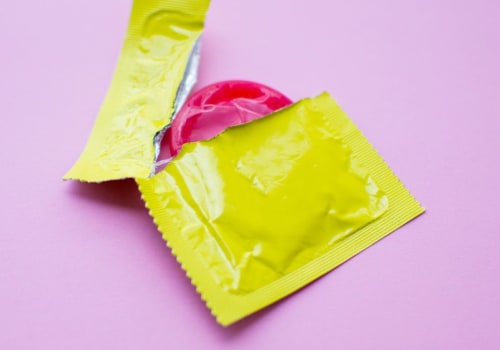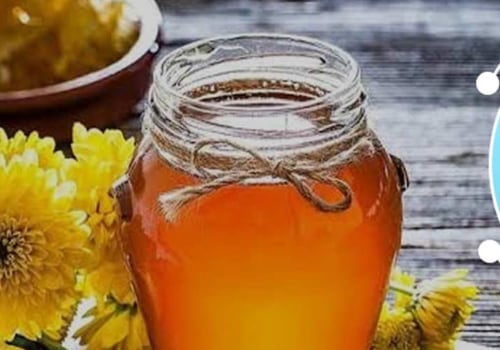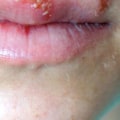Are you looking for ways to reduce outbreaks from herpes or other illnesses? Diet changes can be an effective way to help manage outbreaks and keep them at bay. The right diet can help you maintain a healthy immune system, reduce inflammation, and help you stay healthy overall. In this article, we'll discuss how to make dietary changes to help reduce outbreaks. We'll cover what types of foods to include in your diet and which ones to avoid. We'll also provide tips on how to make sure your diet is balanced and nutritious.
Finally, we'll discuss the potential risks associated with making dietary changes, so you can make an informed decision about whether or not it's the right choice for you. Herpes is a virus that affects millions of people around the world. While there is no cure, lifestyle changes, including dietary modifications, can help reduce the frequency and severity of outbreaks. Making the right changes to your diet can be one of the most effective ways to manage herpes outbreaks and keep the virus in check.
Foods High in Lysine and Low in Arginine
Foods that are high in lysine and low in arginine are beneficial for controlling herpes outbreaks.Lysine is an essential amino acid that is used to inhibit viral replication, while arginine helps the virus to reproduce. Foods high in lysine include lean red meats, poultry, fish, and dairy products. Low-arginine foods include fruits and vegetables, such as apples, pears, carrots, and spinach.
Anti-Inflammatory Foods
Herpes outbreaks can cause inflammation of the skin and other tissues, so it is important to include foods that help reduce inflammation in your diet.Foods rich in omega-3 fatty acids, such as fatty fish like salmon, sardines, and mackerel, are great anti-inflammatory options. Other anti-inflammatory choices include walnuts, olive oil, turmeric, garlic, and ginger.
Vitamins and Minerals
It is also beneficial to include plenty of vitamins and minerals in your diet to support your immune system. Foods that are rich in vitamin C can help boost immunity and reduce inflammation.Good sources of vitamin C include citrus fruits, bell peppers, broccoli, kale, and strawberries. Vitamin E is another important nutrient for managing herpes outbreaks; good sources include wheat germ oil, nuts, seeds, and avocados. Zinc is an important mineral for controlling herpes outbreaks; it helps regulate immune function and inhibit viral replication. Good sources of zinc include beef, lamb, oysters, pumpkin seeds, garlic, and mushrooms.
Antioxidant-Rich Foods
Antioxidants help protect cells from damage caused by free radicals and can help reduce inflammation. Foods that are rich in antioxidants include berries, dark leafy greens, dark chocolate, pomegranates, green tea, nuts and seeds.Foods to AvoidCertain foods can trigger or worsen herpes outbreaks. Foods that are high in sugar can suppress the immune system and should be avoided. Processed foods are also best avoided as they are usually high in sugar and unhealthy fats. Other foods to avoid include those that are high in arginine (such as chocolate) and those that contain unhealthy fats (such as fried foods).
Making the right dietary changes can help reduce outbreaks of herpes and keep the virus under control. By including foods high in lysine and low in arginine; anti-inflammatory foods; vitamins and minerals; antioxidant-rich foods; and avoiding those high in sugar or unhealthy fats, you can support your immune system and help manage herpes outbreaks.
Foods to Avoid
When trying to reduce herpes outbreaks, it is important to avoid certain types of food. Foods that are high in sugar and processed foods, such as white flour and white rice, should be avoided. Additionally, unhealthy fats such as butter, margarine, and saturated fats can increase the risk of herpes outbreaks.These types of food can spike blood sugar levels, which can trigger an outbreak of the virus. Eating a balanced diet with plenty of fresh fruits and vegetables can help keep the virus in check and reduce outbreaks.
Beneficial Foods for Reducing Herpes Outbreaks
When it comes to reducing the frequency and severity of herpes outbreaks, making changes to your diet is one of the most effective ways to do so. Eating foods that are high in lysine and low in arginine can help reduce outbreaks and keep the virus in check. Foods that are high in lysine include fish, poultry, eggs, dairy products, legumes, and nuts.Lysine helps to block arginine, an amino acid that can trigger herpes outbreaks. In addition to foods high in lysine, anti-inflammatory foods are also beneficial for reducing herpes outbreaks. These include leafy greens, cruciferous vegetables, fruits, and healthy fats such as olive oil, avocado, nuts, and seeds. Eating these foods can help reduce inflammation and promote healing.
It is also important to limit or avoid certain foods that can trigger herpes outbreaks. These include foods high in arginine such as chocolate, peanuts, and almonds. Additionally, processed foods, sugary drinks, and alcohol can also trigger outbreaks. Making changes to your diet can be a powerful way to reduce the frequency and severity of herpes outbreaks.
Eating foods that are high in lysine and low in arginine, as well as anti-inflammatory foods, can help keep the virus in check and promote healing. Making changes to your diet is one of the most effective ways to reduce herpes outbreaks. By including more lysine-rich foods and avoiding those high in sugar and unhealthy fats, you can help keep the virus in check. Additionally, adding anti-inflammatory foods and foods high in vitamins and minerals can help improve your overall health and well-being. By following a healthy, balanced diet, you can help reduce the frequency and severity of herpes outbreaks. Taking additional steps to reduce stress levels, getting enough sleep, and exercising regularly may also be beneficial for controlling the virus.






